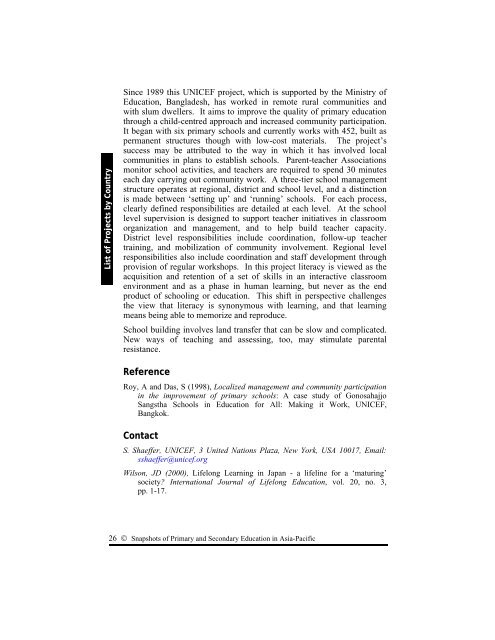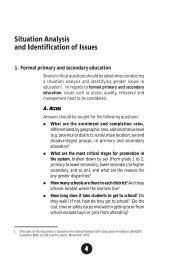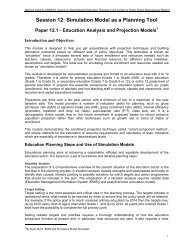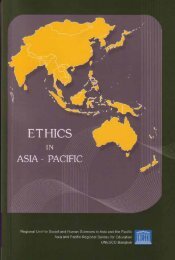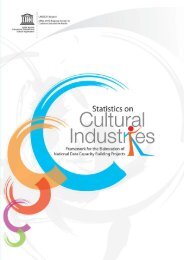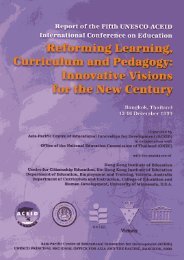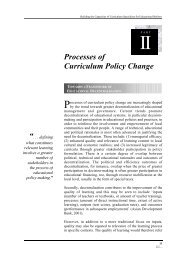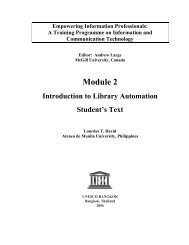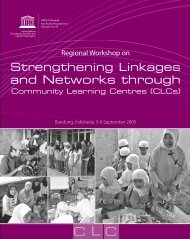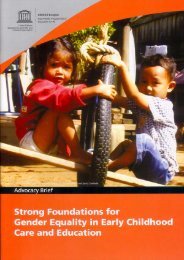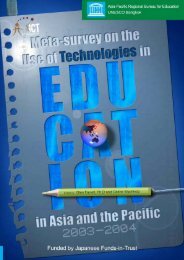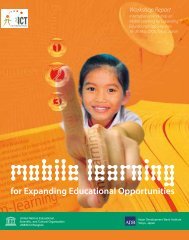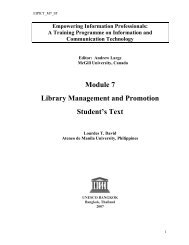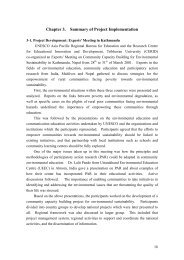Download PDF, 752KB - UNESCO Bangkok
Download PDF, 752KB - UNESCO Bangkok
Download PDF, 752KB - UNESCO Bangkok
You also want an ePaper? Increase the reach of your titles
YUMPU automatically turns print PDFs into web optimized ePapers that Google loves.
List of Projects by CountrySince 1989 this UNICEF project, which is supported by the Ministry ofEducation, Bangladesh, has worked in remote rural communities andwith slum dwellers. It aims to improve the quality of primary educationthrough a child-centred approach and increased community participation.It began with six primary schools and currently works with 452, built aspermanent structures though with low-cost materials. The project’ssuccess may be attributed to the way in which it has involved localcommunities in plans to establish schools. Parent-teacher Associationsmonitor school activities, and teachers are required to spend 30 minuteseach day carrying out community work. A three-tier school managementstructure operates at regional, district and school level, and a distinctionis made between ‘setting up’ and ‘running’ schools. For each process,clearly defined responsibilities are detailed at each level. At the schoollevel supervision is designed to support teacher initiatives in classroomorganization and management, and to help build teacher capacity.District level responsibilities include coordination, follow-up teachertraining, and mobilization of community involvement. Regional levelresponsibilities also include coordination and staff development throughprovision of regular workshops. In this project literacy is viewed as theacquisition and retention of a set of skills in an interactive classroomenvironment and as a phase in human learning, but never as the endproduct of schooling or education. This shift in perspective challengesthe view that literacy is synonymous with learning, and that learningmeans being able to memorize and reproduce.School building involves land transfer that can be slow and complicated.New ways of teaching and assessing, too, may stimulate parentalresistance.ReferenceRoy, A and Das, S (1998), Localized management and community participationin the improvement of primary schools: A case study of GonosahajjoSangstha Schools in Education for All: Making it Work, UNICEF,<strong>Bangkok</strong>.ContactS. Shaeffer, UNICEF, 3 United Nations Plaza, New York, USA 10017, Email:sshaeffer@unicef.orgWilson, JD (2000), Lifelong Learning in Japan - a lifeline for a ‘maturing’society? International Journal of Lifelong Education, vol. 20, no. 3,pp. 1-17.26 © Snapshots of Primary and Secondary Education in Asia-Pacific


